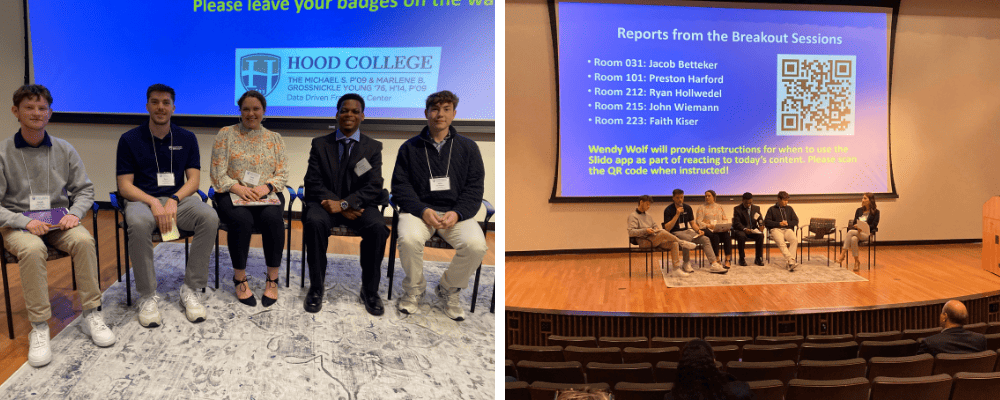Article by Clara Niel, of the Frederick News Post
More than 100 youth organization leaders and members gathered at Hood College on Thursday to work on creating a Frederick County youth services network.
In the first of many meetings to connect the organizations, Thursday’s gathering focused on data. Through Hood College’s Data Driven Frederick, a new repository for various data, the organizations hope to be more connected in serving local youths and figuring out where their services are needed.
Kathryn Vicere, the Ausherman Family Foundation’s community impact manager, said the meeting was meant to get groups comfortable with the idea of sharing data, even if they’re not sure yet what to share and what they might need.
“We have so many amazing youth service providers and people doing wonderful things, particularly in the nonprofit sector, but everybody is so protective of their data,” Vicere said. “Often, there’s a lot of duplication of effort and wouldn’t we be so much stronger if we’re all working together toward something?”
The leaders talked in small groups about the data their organizations collect, how they share it, what data they are missing and the barriers they see in sharing data.
Some said they collect data based on ZIP codes or school districts, which can present challenges when children live in different places and or with shifting district boundaries.
A Literacy Council of Frederick County representative said the organization uses Asset Limited, Income Restrained, Employed (ALICE) family data because the parents that they focus on have a direct impact on the literacy of their children.
The Center of Adoption Support and Education collects both quantitative data — such as addresses and demographics — but also qualitative data, such as if a child is thinking of suicide and if they’ve done anything to act on those thoughts, a representative said.
Benita Rashaw, associate vice president of student affairs at Frederick Community College, said qualitative data is important to tell stories that go beyond numbers.
Some leaders said they often collect data needed to get grant money or to share with donors.
“Sometimes, it’s not incentivizing for us to share our data because a lot of the time with nonprofits, administrative fees are not covered in grants,” said Clifton Jackson of Living Well Youth Works, an organization that teaches teens life skills.
Some groups mentioned challenges such as a disconnect with government or inconsistent data and metrics.
“Even locally, the data for my community when it comes to collecting sexual orientation or gender identity is not nearly comprehensive enough to be able to actually produce the results that people are looking for,” said state Del. Kris Fair, the executive director of the Frederick Center, which provides LGBTQ+ services.
HIPAA, a federal law that protects individuals’ medical information, can be a barrier, Hood College’s Erik Devereux said.
Student Homelessness Initiative Partnership of Frederick County Executive Director Melissa Muntz said youth organizations have a good sense of what programs other organizations offer, but not necessarily which programs fail.
Data Driven Frederick, the new analytics center based at Hood College, is expected to streamline data and put it all in one place. The center can clean and analyze data for people who need it, Ericka Rohrbaugh, the city of Frederick’s assistant director of human services, said.
“It was a very good learning experience to hear from other nonprofit organizations, what those barriers are for them, as well as those gaps,” said Cindy Morgan, founder of Steadfast, a new youth homelessness nonprofit.

Interested in more news articles?
Check out other happenings and interesting news related to the Ausherman Family Foundation and Frederick County, MD.